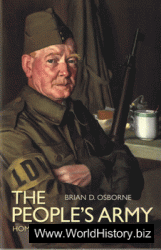Ancient epic, especially by Homer and Virgil, was important in educating the young. Homeric epic, for example, deliberately avoided many myths concerning intrafamilial crime and conflict favored by later epic and drama, and gave a central role to a heroically faithful wife such as Penelope, who represents the ideal partner for a long-suffering hero. Although over time the influence of tragedy and elegy, and historical shifts in the role of women, broadened the scope and tone of epic’s representation of women, it remained in many respects a genre more restrained and self-conscious about its role and tradition than other literary genres. In epics primarily devoted to ‘‘kings and battles,’’ women, the rare female warrior excepted, largely serve as causes and victims of conflict, occasional mediators among warring men, and sometimes heroic mourners of the dead. In contrast to Homer, Virgil’s women more actively impede heroic destiny and foment conflict among men more inclined to make peace. Imperial Roman epic, despite its obvious debt to Virgil, seems to complicate its representation of the female to include mediators for peace like Jocasta and Antigone powerful enough to be a threat to the fury Tisiphone herself (Theb. 11.102-5), fanatically devoted wives, and defenders of children (Imilce) or the dead
{Thebaid). Even the traditionally ferocious goddess Hera/Juno becomes a more benign and effective historical force in Silius Italicus and Statius.
Epics depicting heroic journeys are less constrained by historical realities and more experimental in their treatment of gender roles. Medea’s or Circe’s magical powers or the Lemnian women’s revenge for their erotic rejection offer examples of the female capacity to enslave men to their appetites or condemn them to an unheroic destiny or disaster. When these epics focus on domestic life, they occasionally include significant roles for non-aristocratic women such as the Odyssey’s unfaithful servant Melantho and the devoted slave and nurse Eurykleia. Although all ancient epics can play on standard cultural cliches about female irrationality, infidelity, uncontrolled passion, vengefulness, and incapacity for public life, women and female divinities in these epics can play the role of helper and civilizer, especially in brutal foreign or exotic environments.




 World History
World History









